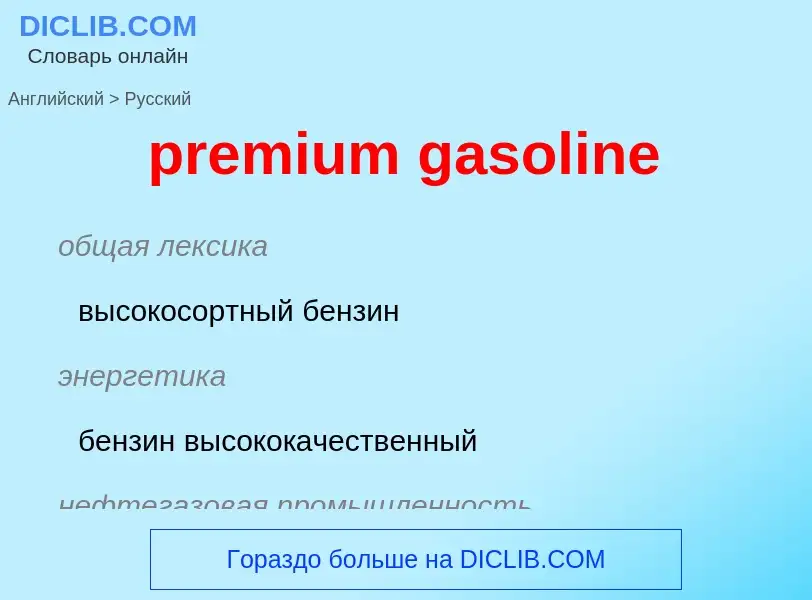Translation and analysis of words by ChatGPT artificial intelligence
On this page you can get a detailed analysis of a word or phrase, produced by the best artificial intelligence technology to date:
- how the word is used
- frequency of use
- it is used more often in oral or written speech
- word translation options
- usage examples (several phrases with translation)
- etymology
premium gasoline - translation to russian
общая лексика
высокосортный бензин
энергетика
бензин высококачественный
нефтегазовая промышленность
бензин с октановым числом не менее
2 (по моторному методу)
Wikipedia
An octane rating, or octane number, is a standard measure of a fuel's ability to withstand compression in an internal combustion engine without detonating. The higher the octane number, the more compression the fuel can withstand before detonating. Octane rating does not relate directly to the power output or the energy content of the fuel per unit mass or volume, but simply indicates gasoline's capability against compression.
Whether or not a higher octane fuel improves or impairs an engine's performance depends on the design of the engine. In broad terms, fuels with a higher octane rating are used in higher-compression gasoline engines, which may yield higher power for these engines. Such higher power comes from the fuel's higher compression by the engine design, and not directly from the gasoline.
In contrast, fuels with lower octane (but higher cetane numbers) are ideal for diesel engines because diesel engines (also called compression-ignition engines) do not compress the fuel, but rather compress only air and then inject fuel into the air that was heated by compression. Gasoline engines rely on ignition of air and fuel compressed together as a mixture, which is ignited near the end of the compression stroke by electric spark plugs. Therefore, high compressibility of the fuel matters mainly for gasoline engines. Using gasoline with lower octane may cause engine knocking (pre-ignition).
The octane rating of aviation gasoline was extremely important in determining aero engine performance in the aircraft of World War II. The octane rating alone did not only determine the performance of the gasoline, but also the versatility of the fuel in handling a range of lean to rich operating conditions.


